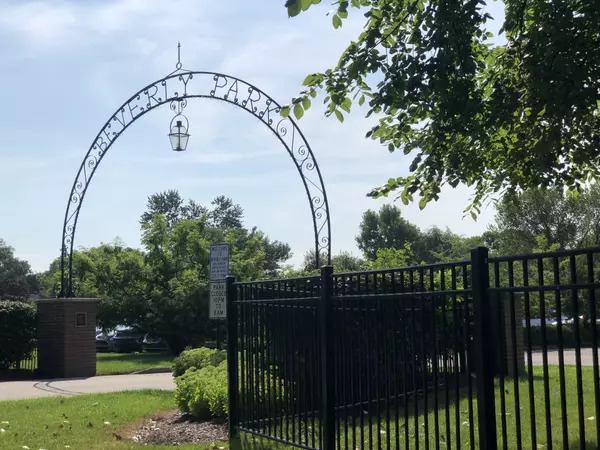Understanding Probate Real Estate in Michigan

Navigating the probate process can be a daunting task, especially when dealing with the complexities of real estate. In Michigan, probate is the court-supervised process of settling a deceased person's estate. This process can be particularly intricate when it involves real estate assets. As a probate real estate specialist, my goal is to help you understand the probate process, its implications on real estate, and how to navigate this challenging terrain.
What is Probate?
Probate is the legal processs by which a deceased person’s estate is settled under the supervision of the court. This process ensures that the deceased’s assets are distributed according to their Will or, if no Will exists, according to Michigan’s intestacy laws. The court validates the Will and appoints an Executor (or also known as a Personal Representative)—often named in the Will—to manage the estate. The Personal Representative or Executor is responsible for cataloging assets, appraising them, settling debts and taxes, and distributing the remainder to the beneficiaries as stipulated in the Will. Without a Will, the court appoints an executor, and Michigan’s laws determine the asset distribution.
In Michigan, the probate process can be complex, time-consuming, and often expensive. Every probate situatuation is different, but the probate process can take anywhere from 7 to 12 months to complete, during which your heirs may experience significant stress and inconvenience. Therefore, many people seek ways to avoid probate to spare their loved ones from this challenging process.
Is Probate Always Necessary?
Not all estates are required to undergo probate in Michigan. Whether probate is necessary depends on various factors, including the value of the estate and the types of assets involved. Probate is typically required if:
- The deceased did not leave a Will.
- The estate consists solely of a Will without a living trust.
- There are disputes over the existing Will, Trust or estate.
However, probate can be bypassed under certain conditions. Some of these include:
- Jointly Owned Assets: Assets owned jointly with rights of survivorship automatically pass to the surviving owner without going through probate. A common example of this is when a husband or wife passes the assets go to the surviving spouse.
- Assets with Designated Beneficiaries: Certain assets like life insurance policies, retirement accounts, and payable-on-death accounts can bypass probate if they have designated beneficiaries. It is important that you have name a beneficiary in your life insurance policy and other investment or retirement accounts including 401(k), IRA or similar accounts.
- Assets in a Living Trust: Placing assets in a Living Trust allows them to be managed and distributed by the Trustee without probate court involvement.
Another unique tool available in Michigan that many of our clients have used is the Lady Bird Deed. Michigan is one of the few states that allow this deed, which can help keep property in the family without sacrificing Medicaid eligibility or subjecting the asset to state recovery efforts after death. A Lady Bird Deed is not a substitute for a will or a trust but is a valuable tool in estate planning to avoid probate for real estate.
The Probate Process Steps
Understanding the steps involved in the probate process can help you navigate it more effectively. Here’s a detailed look at the key stages:
1. Filing a Petition
The first step in the probate process is filing a petition with the probate court to open a probate case. This is typically done by the Personal Representative or Executor named in the Will or by an interested party if no Will exists. The court will then appoint a Personal Representative to manage the estate.
2. Notification of Heirs and Creditors
Once appointed, the Personal Representative is responsible for notifying all potential heirs and creditors about the estate proceedings. This notification process ensures that everyone with a potential interest in the estate is aware of the ongoing probate process.
3. Inventory of Assets
The Personal Representative must compile a comprehensive inventory of all probate assets. This inventory includes real estate, vehicles, personal items, financial accounts, and any other assets owned by the deceased. The Personal Representative must determine the fair market value of all assets. We often assist Personal Representatives find out how much the inherited property is worth. We prepare an Equity Review Report detailing the value of the property and what it will sell for in today's market.
4. Settling Debts and Taxes
Before any assets can be distributed to the beneficiaries, the Personal Representative must use the estate’s assets to pay off any outstanding debts, expenses, and taxes owed by the deceased. This step is crucial to ensure that the estate is settled legally and all obligations are met.
5. Distribution of Assets
After all debts and taxes have been settled, the remaining assets are distributed to the beneficiaries according to the Will. If no Will exists, the distribution is carried out according to Michigan’s intestacy laws. This step often involves selling real estate properties, such as houses, condos, or investment properties, to distribute the proceeds among the beneficiaries or heirs.
6. Closing the Estate
The final step in the probate process is closing the estate. The Personal Representative must submit a final accounting to the probate court, detailing all transactions and distributions made during the probate process. Once the court approves this final account, the estate is formally closed, and the Personal Representative is released from their duties.
Seeking Professional Guidance
The probate process in Michigan can be complex and challenging. It’s advisable to consult a qualified probate attorney to ensure all legal requirements are met. A professional can provide valuable guidance and help you navigate the intricacies of probate, ensuring that the process is handled efficiently and legally.
Join Our Live Online Event
Regularly we host a Live Online Event You’re a Personal Representative. Now What? Register today at ProbateEvent.com to join the next event. This event will provide you with valuable information on how to manage your duties as a Personal Representative in a stress-free, effective way.
For Assistance with Probate Real Estate
For assistance with probate real estate, visit HigginsPartners.com. Jeff Higgins and his team specialize in serving the five-county Metropolitan Detroit area of Oakland, Macomb, Livingston, Washtenaw, and Wayne. Through their extensive partner network, they service the entire state of Michigan, providing expert guidance and support during this challenging time.
Contact Us
For personalized advice and professional assistance, contact Jeff Higgins and his team today. Let us help you navigate the complexities of probate real estate with compassion and expertise. We are committed to making this process as smooth and stress-free as possible for you and your family.
Disclaimer
Jeff Higgins is a professional licensed real estate agent in the state of Michigan. The purpose of this blog is to share information from the perspective of a real estate professional in the State of Michigan. This blog should not be construed as legal advice or used as legal advice in any way. Please consult a qualified probate attorney for legal questions surrounding the probate process. If you do not have a probate attorney, Jeff Higgins and his team are happy to connect you with one of their preferred probate attorneys. Please email Jeff Higgins at jeff@higginspartners.com for more information.
Categories
Recent Posts










GET MORE INFORMATION
Managing Partner | License ID: 6506046014
280 North Old Woodward Avenue, Suite 100, Birmingham, MI, 48009, United States
